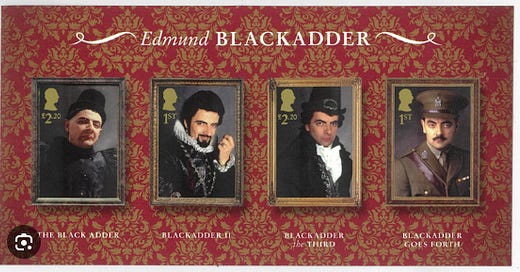My English classroom: challenging student stereotypes about satire
Our Year 10 satire course poses the question: ‘Should satire have an ethical intent?”
It’s a bad question, I’ve come to realize, because it implies an option: that satire might have an ethical intent, or that it might not. I thought so myself, once.
I used to think that there were two kinds of satire: the kind that just mocked for the sake of mocking, and the kind that was trying to achieve something worthwhile. Through teaching this unit for a couple of years (we come to understand more deeply through having to teach!), I now believe that true satire always has an ethical intent, that satirists are incensed or frustrated or dismayed or even concerned, and that they are motivated by a desire to expose some vice or folly that the rest of us might otherwise not see.
The sloppy way we asked the question has contributed to a struggle many of the students are experiencing as they strive to see beyond their pre-conceptions about satire. Most of the students came into the course with a vague notion that satire was all about having a few laughs at someone else’s expense. They found our question ‘ethical intent’ at odds with their initial conception.
There has been considerable resistance to the idea that satire has an ethical underbelly, that it plays an important role in a healthy society.
[Those] of us involved in education have not appreciated the strength of the initial conceptions, stereotypes and ‘scripts’ that students bring to their school learning nor the difficulty of refashioning or eradicating them,” (Howard Gardner p5 of ‘The Unschooled Mind’).
This is what we’re wrestling with at the moment in my two Year 10 Satire classes.
If you were to look at our class Ning, you might think otherwise. We’ve got blogs being written about the nature of satire, discussions happening about whether or not satire, by its very nature, must have an ethical intent, and there’s growing evidence everywhere there that many of the students have ‘got it’, that their initial ideas about satire have shifted.
Andrew, for example, wrote:
In listening to the speeches of other boys in the class today I realised that a good satire isn't just a piece of comedy that’s having a laugh at any old subject but rather one that points out the flaws or ridicules something that people take more seriously such as politics. I think now that it is also more important that there is something for the reader/viewer to learn in a piece of satire ... [Satirists] seem to be trying to prove a point or influence the reader/viewer on the topic.
So, it looks as though progress is being made by the students, that the thinking is shifting.
But, as Gardner suggests, we sometimes underestimate the difficulty of refashioning or eradicating the underlying assumptions of the intuitive learner. At the end of last week I stood at the door of my classroom and asked the following question:
Would you say that it is a necessary precondition of satire that the satirist has an ethical intent?
Most said ‘sometimes’ or ‘mostly’, a substantial minority said ‘no’, and only a couple said ‘yes’.
This is neither surprising or frustrating. The boys are doing really well. Our classroom conversation are thoughtful and lively, and their thinking is shifting from clearly expressed but superficial understanding to more tentative and sometimes confused acknowledgment that there are unexpected complexities and challenges here.
And it is a complex question. I’m not always confident that I’ve grasped the essence of satire myself, and I feel the need to keep on thinking about it. The boys challenge me to think further. The complexity is contributing to the aliveness of our discussions.
But I don’t want to let myself be fooled by the fun we’re having. The unschooled assumptions are sneaky, and have a habit of going underground for a while (as students respond as they imagine the teacher wants them to respond), and then of resurfacing later on.
Over the next couple of weeks I’ve asked the students to research a satire-related question of their own choosing, and to create some satire themselves. I’m hoping that these experiences, and the reflections and discussions that come out of them, will further undermine unschooled assumptions and build more durable and deep understanding.




